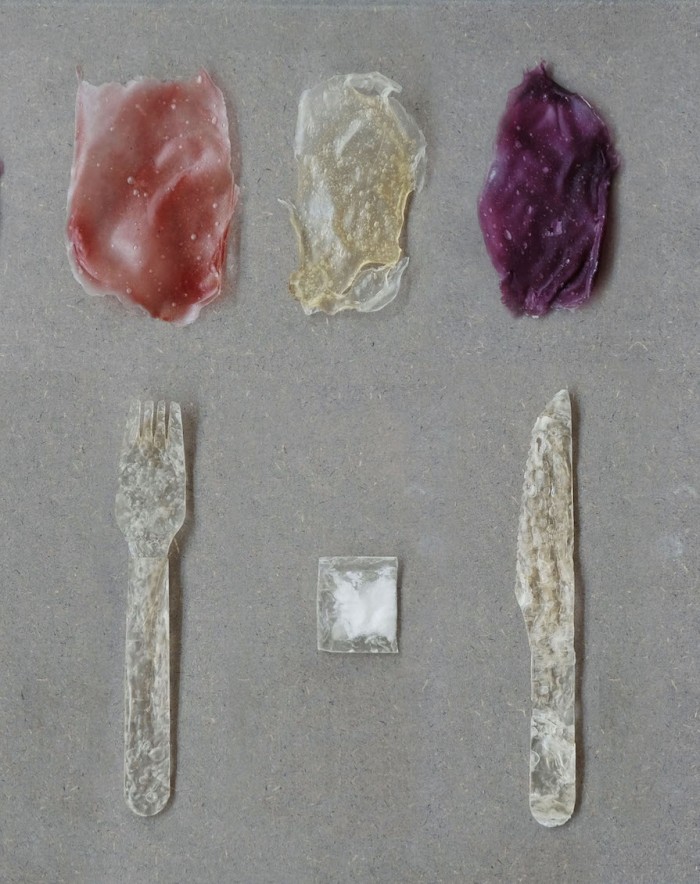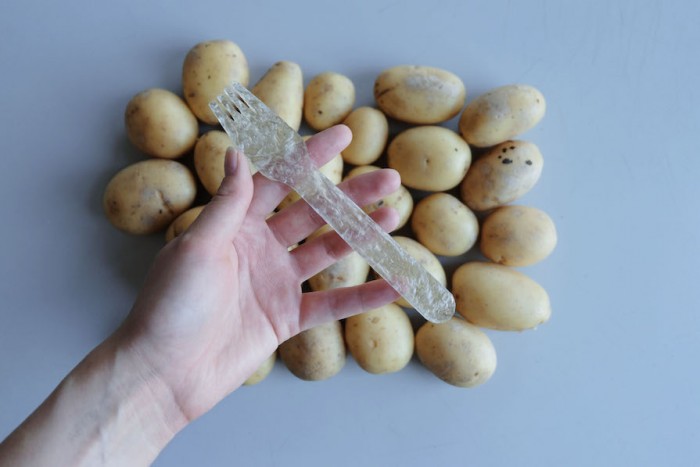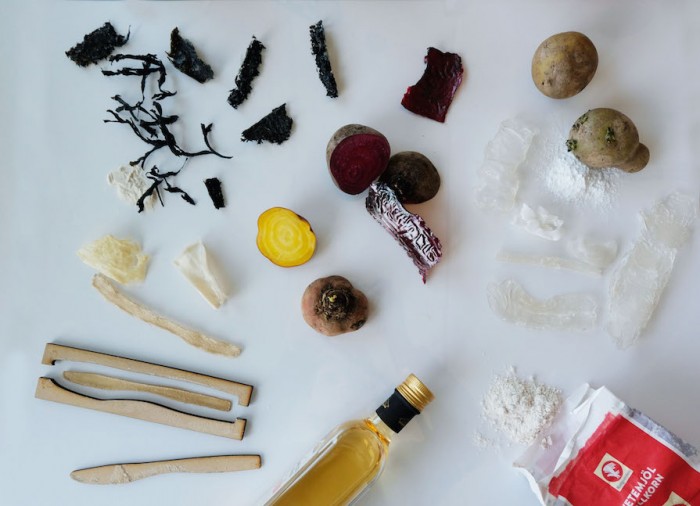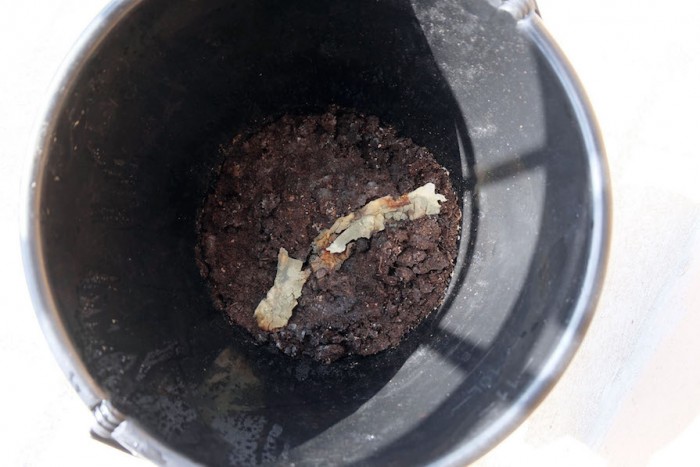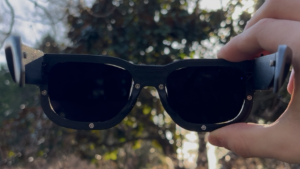Pontus Törnqvist, who studies Industrial Design at Lund University, wanted to combat the fast-food industry's excessive use of disposable plastic by finding a bio-degradable plant-based plastic.
He looked at the different forms plant-based plastics can take, and how this could reduce plastic waste. With this aim in mind, he created a biodegradable material called Potato Plastic, which, in 2018, won him the Swedish leg of the inaugural James Dyson Award for international innovative design.
Fast-food industry a big plastic waste culprit
“A large percentage of the plastic that is circulating in our environment comes from the fast-food industry's products, probably since they are grab-and-go friendly,” writes Törnqvist. “This, in combination with their quality, is devastating for the environment. Therefore, I see an opportunity in adapting their quality to their planned length of life.”
But what does it mean to “adapt their quality to their planned length of life”? According to Törnqvist, the Potato Plastics’ biodegradable qualities allow a product to only be used once. After that it decomposes into soil nutrients. Something that is only used once, does not have to be of lasting quality.
With this system fast-food outlets will be able to use Potato Plastic products for cutlery, straws and condiment containers. These will leave no plastic footprint.
Potato Plastic comes from the earth
“This material is made from something that comes from the earth, and later on it can end up back in the soil, while posing no risk to nature,” according to Törnqvist.
So what gives the Potato Plastic its properties? According to Törnqvist it's two simple ingredients: water and potato starch. Thanks to these two materials, he was able to create a fluid that dries to a plastic-like film.
But the formulation of this is not as easy as it sounds. Törnqvist revealed that there was a very technical side to the production of the material.
“First, the exact amount of both ingredients are mixed together, and then heated until the fluid thickens. It is then poured into moulds and exposed to heat, until is a dry compact piece. Depending on how much fluid is poured into a mould, the material can either become a thick, tough piece, or a thin film,” he said.
Cheap and bio-degradable
This process resulted in the development of many design possibilities and, because he used plastic instead of metal or steel, the cost would also be lower.
This started out as a student project for Törnqvist, but in the future he hopes to expand by going into professional production of the product. He also wants other countries to use the materials that are available to them, as this product does not necessarily have to be made using potato starch.
“If the country has higher production of rising, for example, starch from rising could be used instead. This, because I see an ecological and an economic benefit in using the waste that we already have instead of creating new waste.”
In 2018 Potato Plastic became Sweden's inaugural National winner of the James Dyson Award, which is an international student design award that looks at innovative projects from around the globe.
As this product provides an alternative to plastic, which pollutes the environment and can take up to 1000 years to decompose, it could revolutionise not just the fast-food industry, but many other business enterprises as well – and do so cheaply.
Read more:
Low-cost artificial leg for amputees in developing countries
A menstrual toolkit developed for refugee women
The Parkinson Smart Cane is a portable device to assist Parkinson’s disease patients

